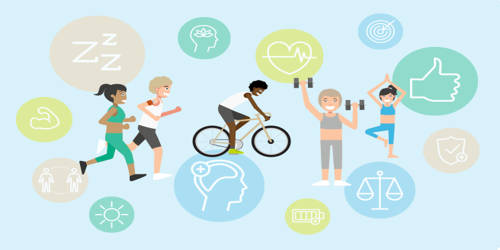Stress is something that affects many people each and every day. It is defined as a person’s response to his environment. Symptoms of stress include exhaustion, loss of/increased appetite, headaches, crying, sleeplessness, and oversleeping. Feelings of alarm, frustration, or apathy may accompany stress. It could be caused by pressure and problem at work location and individual lifestyle. Working adults often face work-related stress. Every individual will experience stress in one or the other time.
Stress can be very harmful and or helpful. It is a basic thing in everyday life and there is no way to escape. It could help motivate you to meet a deadline and perform a task under pressure. Stress can also be very harmful, such as memory problems, moodiness, aches and pains, and eating more or less. Some say that a little stress is good for you as it pushes you to reach and achieve your goals. On the other hand, when stress is prolonged, it causes physical and emotional problems that may damage both your health and your performance.
There are many ways in which we can reduce stress in our lives. Firstly, get up fifteen minutes earlier each morning. That gives you a little more time to eat something, run back to get something you may have forgotten, or enjoy a cup of coffee before heading out the door. If you drive to work, a 15- or 20-minute head start may mean facing less traffic, thus making the journey less stressful.
The next thing that we can do to reduce stress is to confide in someone we trust. Harassment is another workplace stressor of increasing importance. Don’t keep things bottled up. Talking with someone helps you to put things in a better perspective. Do not be afraid to seek professional help if you feel you have reached a breaking point. Poor communication can cause stress in the workplace.
Besides that, learn how to relax. Everyone has a responsibility to take appropriate measures. Meditation and breathing exercises have proved to be very effective in controlling stress. Breathing in this way calms your whole nervous system. Follow good diet habits also effective in dealing with stress. Simultaneously, you could give yourself some mental pep-talk by mentally repeating “I am calm and relaxed” or “I know I will be fine”. Meditation is scientifically proved to be very useful, both physically and mentally to cope with stress.
Finally, learn to set your priorities right and do not over-commit yourself. If people will handle stress effectively this can provide a lot of advantages to people. People who are over-committed tend to feel overwhelmed and suffer. Reduce the number of events going on in your life and you may reduce the circuit overload. Set realistic goals for yourself and put it in writing. There can be a lot of stress every day and we should have a lot of power to overcome it.
Information Source:
















